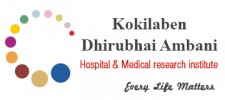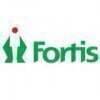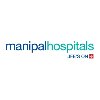Hospital Pharmacist
100+ Hospital Pharmacist Interview Questions and Answers

Asked in Netmeds.com

Q. What is jurisprudence
Jurisprudence is the study and interpretation of laws and legal principles.
Jurisprudence involves analyzing and understanding the legal system and its principles.
It includes studying the history, philosophy, and theories of law.
Jurisprudence helps in interpreting and applying laws to specific cases.
It involves examining legal precedents and understanding the reasoning behind them.
Pharmacists need to have knowledge of jurisprudence to ensure compliance with pharmacy laws and r...read more

Asked in Nova IVI Fertility

Q. Where does a pharmacist register?
Pharmacist registration is done with the regulatory body of the country or state.
Pharmacists must be registered with the regulatory body in their country or state.
In the United States, pharmacist registration is done with the state board of pharmacy.
In the United Kingdom, pharmacist registration is done with the General Pharmaceutical Council.
Registration requirements may vary by country or state.
Pharmacists must meet certain education and training requirements to be eligible...read more

Asked in Medical Point

Q. What is meant by upselling and cross-selling?
Upselling is encouraging customers to purchase a higher-end product or additional items, while cross-selling is suggesting related or complementary products.
Upselling involves persuading a customer to buy a more expensive version of the product they are interested in.
Cross-selling involves offering customers related or complementary products to go along with their original purchase.
Examples: Upselling - suggesting a customer upgrade to a premium brand of medication. Cross-sel...read more

Asked in Apollo Hospitals

Q. What is prescription, give handling of prescription
A prescription is a written order from a healthcare provider for the dispensing of medication. Handling of prescription involves various steps.
Prescription is a legal document that includes the patient's name, medication name, dosage instructions, and prescriber's information.
Pharmacists receive prescriptions from patients or healthcare providers.
They verify the prescription for accuracy and legality.
Pharmacists interpret the prescription to determine the appropriate medicati...read more

Asked in Zydus Lifesciences

Q. What is a disintegration test?
Disintegration test is a test to determine the time it takes for a drug to disintegrate into smaller particles in a specified medium.
Disintegration test is performed to ensure that a drug will break down properly in the body.
It helps to assess the effectiveness of tablet or capsule formulations.
The test involves placing the drug in a dissolution medium and measuring the time it takes for the drug to disintegrate.
Disintegration time can vary depending on the formulation and th...read more

Asked in Sun Pharmaceutical Industries

Q. What is quality control?
Quality control is a process that ensures products or services meet specified requirements and standards.
Quality control involves monitoring and testing products or services to identify any defects or deviations from standards.
It aims to prevent errors or defects from reaching the customers.
Quality control includes activities such as inspections, sampling, testing, and documentation.
It helps in maintaining consistency and improving the overall quality of products or services....read more
Hospital Pharmacist Jobs



Asked in Shalby Hospitals

Q. How do you perform total inventory valuation of a pharmacy?
The total inventory valuation of a pharmacy refers to the monetary value of all the medications and supplies in stock.
Inventory valuation is important for financial reporting and managing pharmacy operations.
It involves calculating the cost of each item in stock and multiplying it by the quantity.
The valuation can be done using different methods such as FIFO (First-In, First-Out) or weighted average cost.
For example, if the pharmacy has 100 units of a medication with a cost o...read more

Asked in Life Care Hospital

Q. How do you arrange the medicine?
Medicines are arranged based on various criteria for efficient management and dispensing in a hospital setting.
By therapeutic class (e.g., antibiotics, analgesics)
By route of administration (e.g., oral, intravenous)
By formulary status (e.g., essential medicines, restricted drugs)
By storage requirements (e.g., refrigerated, room temperature)
By patient population (e.g., pediatrics, geriatrics)
Share interview questions and help millions of jobseekers 🌟


Asked in Appolo

Q. What are the infrastructure development and build up nature?
Infrastructure development in healthcare focuses on building facilities, systems, and services to enhance patient care and operational efficiency.
Building new hospitals or expanding existing ones to accommodate more patients.
Upgrading medical equipment, such as MRI machines or surgical robots, to improve diagnostic and treatment capabilities.
Implementing electronic health record (EHR) systems to streamline patient information management.
Creating telehealth services to increas...read more

Asked in Apollo Pharmacy

Q. What percentage of your education is D. Pharma?
I have a D pharma percentage of 80%.
My D pharma percentage is 80%.
I have completed 80% of my D pharma degree.
Out of the total D pharma course, I have completed 80%.
I have a strong foundation in D pharma with an 80% completion rate.

Asked in Paras Hospital

Q. What is the normal range for blood pressure?
Normal blood pressure ranges from 90/60 mmHg to 120/80 mmHg.
Normal blood pressure is typically around 120/80 mmHg.
The top number (systolic pressure) represents the pressure in the arteries when the heart beats.
The bottom number (diastolic pressure) represents the pressure in the arteries when the heart is at rest.
Blood pressure can vary throughout the day and can be influenced by factors like stress, physical activity, and medication.
High blood pressure (hypertension) is gene...read more

Q. Anti tuberculosis grug example. And how to maintenance it's registered.
An example of an anti-tuberculosis drug is Isoniazid. To maintain its registration, regular monitoring of safety and efficacy data is required.
Example of an anti-tuberculosis drug: Isoniazid
Regular monitoring of safety and efficacy data is essential for maintaining registration

Asked in Apollo Pharmacy

Q. How do you dispense drugs to patients?
Dispensing drugs to patients involves accurately preparing and providing medications as prescribed by healthcare providers.
Verify the prescription details and patient information before dispensing
Accurately measure and package the medication according to the prescription
Provide clear instructions to the patient on how to take the medication
Ensure proper labeling of the medication with dosage instructions and warnings
Document the dispensing process accurately in the patient's ...read more

Asked in Pride

Q. What is pharmacokinetics?
Pharmacokinetics is the study of how drugs are absorbed, distributed, metabolized, and excreted by the body.
Pharmacokinetics examines how drugs are absorbed into the bloodstream.
It also studies how drugs are distributed throughout the body and reach their target sites.
Metabolism refers to the process of drug breakdown and transformation in the body.
Excretion involves the elimination of drugs and their metabolites from the body.
Understanding pharmacokinetics helps in determini...read more

Asked in Nova IVI Fertility

Q. How will you manage multiple patients in a row?
I will prioritize patients based on their urgency and ensure efficient time management.
Assess the urgency of each patient's needs
Create a schedule and prioritize patients accordingly
Delegate tasks to pharmacy technicians if necessary
Ensure timely medication dispensing and counseling
Document patient interactions and medication orders
Communicate with healthcare providers as needed

Asked in Seven Hills Hospital

Q. What are diabetic drugs?
Diabetic drugs are medications used to manage diabetes by controlling blood sugar levels.
Diabetic drugs help regulate blood sugar levels in individuals with diabetes.
There are different types of diabetic drugs, including insulin, oral medications, and injectable medications.
Insulin is a hormone that helps the body use and store glucose properly.
Oral medications for diabetes include metformin, sulfonylureas, and DPP-4 inhibitors.
Injectable medications like GLP-1 receptor agoni...read more
Asked in Asha Hospital

Q. Antihypertensive drug, classes with example?
Antihypertensive drugs are used to treat high blood pressure. They can be classified into several classes.
Diuretics: Examples include hydrochlorothiazide and furosemide.
Beta blockers: Examples include metoprolol and propranolol.
Calcium channel blockers: Examples include amlodipine and diltiazem.
Angiotensin-converting enzyme (ACE) inhibitors: Examples include lisinopril and enalapril.
Angiotensin II receptor blockers (ARBs): Examples include losartan and valsartan.
Alpha blocker...read more
Asked in Knoll Healthcare

Q. What is the difference between Justin and Vovran injections?
Justin and Vovran injections are both painkillers, but they contain different active ingredients.
Justin injection contains ketorolac tromethamine, which is a nonsteroidal anti-inflammatory drug (NSAID) used to relieve pain and inflammation.
Vovran injection contains tramadol hydrochloride, which is an opioid pain medication used to treat moderate to severe pain.
Both injections have different side effects and contraindications, and should only be used under the supervision of a...read more

Asked in Fortis Healthcare

Q. What is the role of a hospital pharmacy?
Hospital pharmacies ensure safe, effective medication use, support patient care, and collaborate with healthcare teams.
Dispensing medications: Preparing and providing prescribed medications to patients.
Medication management: Monitoring patient medication regimens for efficacy and safety.
Clinical consultations: Collaborating with healthcare providers to optimize drug therapy.
Patient education: Informing patients about their medications, side effects, and adherence.
Formulary ma...read more

Asked in Medical Point

Q. What are antacid drugs?
Antacid drugs are medications that help neutralize stomach acid to relieve symptoms of indigestion, heartburn, and acid reflux.
Antacid drugs work by increasing the pH level in the stomach, reducing acidity.
They can provide quick relief from symptoms like heartburn, indigestion, and sour stomach.
Common ingredients in antacid drugs include aluminum hydroxide, magnesium hydroxide, calcium carbonate, and sodium bicarbonate.
Antacid drugs are available in various forms such as tabl...read more

Asked in Apollo Hospitals

Q. What is hospital pharmacist, define dispensing
A hospital pharmacist is a healthcare professional who specializes in the safe and effective use of medications in a hospital setting.
Hospital pharmacists work closely with healthcare providers to ensure that patients receive the appropriate medications and dosages.
They review medication orders, assess patient profiles, and provide drug information to healthcare teams.
Dispensing refers to the process of preparing and providing medications to patients according to a prescripti...read more
Asked in Mamal Multi Speciality Hospital

Q. At what dosage does paracetamol become toxic?
The toxic dose of paracetamol varies depending on age, weight, and health status.
The toxic dose of paracetamol is generally considered to be 10-15 grams in adults
In children, the toxic dose is lower and can be as little as 150 mg/kg
Factors such as liver function, alcohol consumption, and use of other medications can also affect toxicity
Symptoms of paracetamol toxicity include nausea, vomiting, abdominal pain, and liver damage
Treatment for paracetamol toxicity may include acti...read more

Asked in Manipal Hospitals

Q. What is your experience with pharmaceutical formulations and their uses?
Formulation in pharmacy involves creating drug products for effective delivery and therapeutic outcomes.
Formulation types include solid (tablets), liquid (syrups), and semi-solid (creams).
The choice of excipients affects drug stability and absorption.
Example: Enteric-coated tablets protect drugs from stomach acid.
Formulations can enhance bioavailability, e.g., liposomal formulations.
Customized formulations may be needed for pediatric or geriatric patients.

Asked in Paras Hospital

Q. What are anti-hyperlipidemic drugs?
Anti-hyperlipidemic drugs are medications used to lower high levels of lipids (fats) in the blood.
These drugs help reduce cholesterol and triglyceride levels in the bloodstream.
They are commonly prescribed to manage conditions like hyperlipidemia and dyslipidemia.
Examples of anti-hyperlipidemic drugs include statins (e.g., atorvastatin, simvastatin), fibrates (e.g., fenofibrate, gemfibrozil), and bile acid sequestrants (e.g., cholestyramine, colesevelam).

Asked in Alembic Pharmaceuticals

Q. What is pharmacology
Pharmacology is the study of how drugs interact with living organisms and how they affect the body.
Pharmacology involves studying the properties, effects, and uses of drugs.
It explores how drugs are absorbed, distributed, metabolized, and excreted by the body.
Pharmacologists investigate the mechanisms of drug action and their interactions with cells, tissues, and organs.
They also study drug safety, efficacy, and potential side effects.
Examples of pharmacology include understa...read more

Asked in Medical Point

Q. Tell me the names of any five multivitamin tablets.
Some common multivitamin tablet names include Centrum, One A Day, Nature Made, Kirkland Signature, and GNC Mega Men.
Centrum
One A Day
Nature Made
Kirkland Signature
GNC Mega Men

Asked in Netmeds.com

Q. What is pharmacodynamics?
Pharmacodynamics is the study of how drugs interact with the body to produce their effects.
Pharmacodynamics focuses on the relationship between drug concentration and its effects on the body.
It involves studying drug-receptor interactions, drug mechanisms of action, and the resulting physiological and biochemical changes.
Pharmacodynamics helps determine the potency, efficacy, and safety of drugs.
For example, understanding the pharmacodynamics of an analgesic drug helps predic...read more

Asked in Netmeds.com

Q. What is the meaning of the Latin term Rx?
Rx is a Latin term used in medical prescriptions to indicate 'take' or 'prescription'.
Rx is derived from the Latin word 'recipe', which means 'take' or 'receive'.
It is commonly used as a symbol on medical prescriptions to indicate that a medication is to be dispensed.
The symbol Rx is often followed by the name of the medication and the instructions for use.
For example, a prescription might say 'Take 1 tablet by mouth daily' with Rx preceding it.
Rx is recognized internationall...read more

Asked in Fortis Healthcare

Q. What is the structure of a hospital pharmacy?
A hospital pharmacy is structured to support patient care through medication management, safety, and clinical services.
Pharmacy Director: Oversees all pharmacy operations and staff.
Clinical Pharmacists: Work with healthcare teams to optimize medication therapy.
Pharmacy Technicians: Assist in dispensing medications and managing inventory.
Medication Safety Officers: Focus on reducing medication errors and improving safety protocols.
Specialized Services: May include oncology, pe...read more
Asked in Narayan Memorial Hospital

Q. Give an example of an antidepressant drug.
An example of an antidepressant drug is fluoxetine.
Antidepressant drugs are used to treat depression and other mental health conditions.
They work by balancing chemicals in the brain called neurotransmitters.
Fluoxetine is a commonly prescribed antidepressant and belongs to the selective serotonin reuptake inhibitor (SSRI) class of drugs.
Other examples of antidepressant drugs include sertraline, escitalopram, and venlafaxine.
Interview Questions of Similar Designations
Interview Experiences of Popular Companies








Reviews
Interviews
Salaries
Users

















